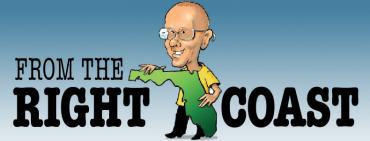
Government is the big winner from the state's gambling operation, not the person in Melbourne who won $528.6 million of the $1.58 billion mega-Powerball prize that was split three ways.
Incidentally, that prize, while no doubt welcome to the recipient, doesn't earn bragging rights for the biggest. A woman in Zephyrhills won $590 million in 2013. (Being 84, she took $370 million in cash and the government munificently allowed her to keep $278 million.)
Since its start in 1988 the lottery has pumped $29 billion into education, ostensibly for “enhancement.”
It was sold that way 30 years ago to entice votes from people who believe that spending more money on education will improve educational outcomes (and that the Tooth Fairy buys baby teeth).
The stated legislative intent was: “That the net proceeds of lottery games ... not be used as a substitute for existing resources for public education.”That slick promise of new money for education was hokum. What is “new” money? Every time funding is increased, which happens almost every year, there is new money.
But, as had happened in Illinois previously, lottery funds merely replaced a portion of the previous revenue stream. Public education certainly has gotten a lot more money in the past 30 years, and would have even without the lottery.
Critics complain that the lottery is a regressive tax on the poor and perhaps it is. But it is also the fairest kind of tax there is – completely voluntary. Don't play, you don't pay.
About half of the lottery money goes to education. Pre-K-12 has gotten $16.4 billion. State colleges and universities have gotten $7.7 billion and about $4.85 billion has gone to Bright Futures college scholarships, helping 725,000 students pursue a degree. Part of the K-12 money passed along to the school districts is supposed to be used for “school improvement plans” devised by local school advisory councils and for smaller class sizes.
To my knowledge, no one has ever done a study to see what actually happens but money being fungible and bureaucrats being bureaucrats I suspect it is absorbed by the Education Blob and most of it winds up in the paychecks of adults.
About 1,800 people have become millionaires via the lottery. However, it is widely thought that some of them don't remain in that status for long because they squander the money.
Urban legend also has it that many winners become miserable -- although I would like to see evidence of that, at least as it applies to those who don't throw away their windfall.
Lottery Secretary Tom Delacenserie said the Powerball jackpot rollovers that began on Nov. 7 produced more than $114.6 million for education and created 18 new Florida millionaires.
With lottery, casino gambling, and horse and dog racing, gambling might generate more cash for the government than it did for the Chicago mob. Who knows when some politician will get
the idea to include drugs and prostitution, promising to enhance education or save the environment with the loot.
Lloyd Brown was in the newspaper business nearly 50 years, beginning as a copy boy and retiring as editorial page editor of the Florida Times-Union in Jacksonville. After retirement he served as a policy analyst for Florida Gov. Jeb Bush.


